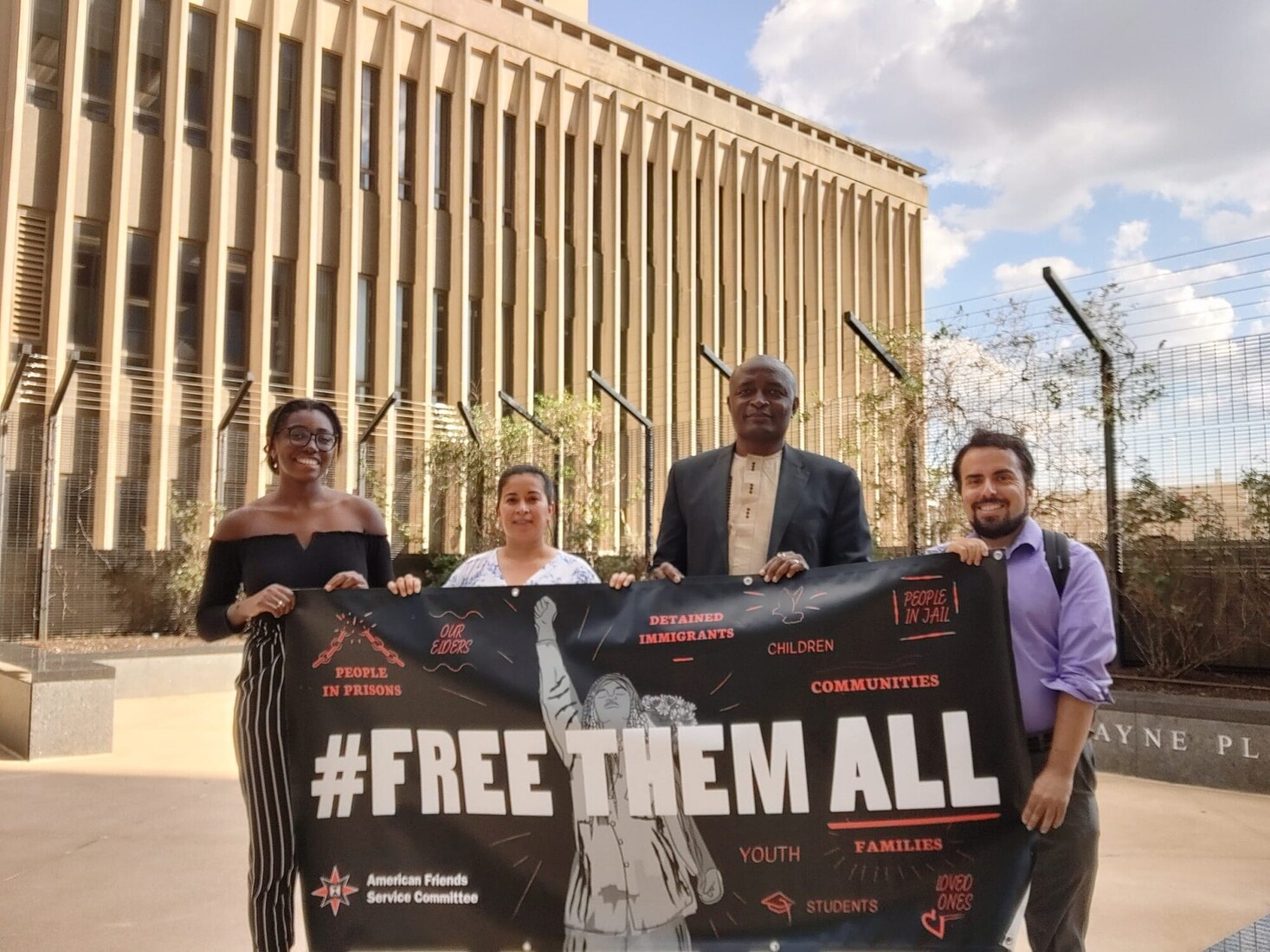
AFSC staff at a protest in New Jersey. Photo: AFSC/New Jersey
True change is radical and often necessitates patience, as my four-month internship as a Migration Policy Intern at the American Friends Service Committee (AFSC) demonstrated through the slow but effective work on migration policy. As an immigrant to the United States who has gone through the immigration process, I understand the difficulties that people face. This personal experience fuels my passion for migration policy and motivates me to advocate.
Throughout my internship at AFSC, I attended meetings on topics ranging from asylum to broader migration justice issues, giving me firsthand knowledge of those working behind the scenes to ensure fairness in migration policies. Migration policy is extremely important. Its impact extends to a variety of areas, including economic stability, labor rights, human dignity, and international relations, highlighting its importance. Recognizing and supporting effective migration policy is critical to fostering inclusive and equitable societies.
However, this experience also taught me about the frustratingly slow pace of policy change and the systemic issues that frequently stymie progress. For example, during my time at AFSC, I recall hearing updates on the status of various states during weekly migration calls. Week after week, I would listen to reports on ongoing efforts to drive change and hear congressional members' perspectives on a variety of related issues. Witnessing the lack of respect and dignity shown to migrants, as well as the bureaucratic roadblocks that prevent meaningful reform, was deeply disheartening.
One particularly slow-moving but impactful project I worked on was registry, a policy designed to help undocumented immigrants by allowing those who have lived in the United States for a long time to apply for permanent residency. Despite its potential to change many people's lives, registry has been pending for several years and faces significant political opposition. The difficulty in passing even minor changes to immigration policy in Congress demonstrates the arduous nature of the work.
However, these challenges demonstrate the strength of numbers and collective advocacy. They reinforced my belief that consistent effort and collaboration can eventually result in significant change. The determination and passion I saw in my colleagues and other advocates motivated me to keep fighting for fair and just migration policies. We can overcome obstacles and create a more equitable system for all by working together and advocating long-term.
The stories of other immigrants I met strengthened my commitment. I met people who would greatly benefit from policies like registry, each with their own set of challenges and hopes for a better future. Their experiences mirrored my own in many ways, emphasizing the critical need for compassionate and effective migration policies.
During this internship, I learned valuable skills that will benefit my future career. I am passionate about using my advocacy and communication skills to positively impact nonprofit, government, and academic settings. I am deeply committed to positively impacting society by advocating for the rights and well-being of migrants and other marginalized groups.
Throughout my internship at AFSC, I was able to delve into migration policy and gain a better understanding of its complexities. I faced a variety of challenges and learned the value of effective advocacy in this field. This experience reaffirmed my commitment to improving immigration policies and taught me valuable skills for my future career. The valuable life lessons and experiences I've had have helped shape my career goals and strengthened my dedication to social justice.
I strongly encourage everyone to actively participate in advocating for migration policies. Every person can help create a more equitable society for migrants by volunteering, supporting organizations like AFSC, or learning about migration issues. Participating actively can make a significant difference in the lives of communities affected by migration policy while also advancing social justice. By banding together and consistently advocating, we can overcome obstacles and establish a more equitable system that benefits everyone. Active participation can improve the lives of communities affected by migration policy while also promoting justice for all.